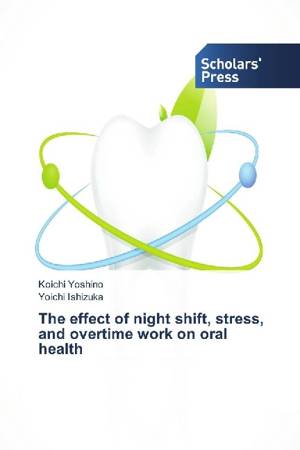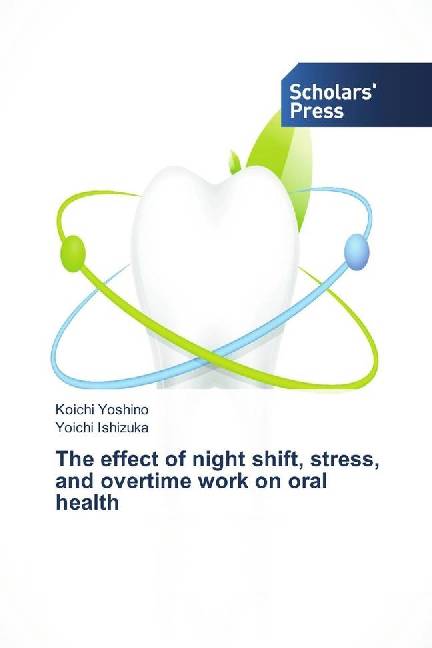
- Afhalen na 1 uur in een winkel met voorraad
- Gratis thuislevering in België vanaf € 30
- Ruim aanbod met 7 miljoen producten
- Afhalen na 1 uur in een winkel met voorraad
- Gratis thuislevering in België vanaf € 30
- Ruim aanbod met 7 miljoen producten
Zoeken
The effect of night shift, stress, and overtime work on oral health
Koichi Yoshino, Yoichi Ishizuka
Paperback | Engels
€ 29,45
+ 58 punten
Omschrijving
Night shift work is known to take a toll on general health and is associated with many lifestyle-related diseases. However, few studies have investigated the influence of night shift work on oral health. Long-term disturbances of circadian rhythms can lead to marked lifestyle changes. Thus, we hypothesized that night shift workers have more oral health problems than daytime-only workers. Job stress can also contribute to oral health diseases, including periodontal disease. The mechanisms by which stress affects periodontal disease progression and wound healing can be divided into two main categories: health-impairing behavior and pathophysiological factors. Therefore, it is reasonable to hypothesize that workers who experience job stress will have predictable oral symptoms. There is an established relationship between working long hours and poor health, as evidenced by the fact that long working hours have been linked to several diseases. However, the relationship between working overtime and oral disease is lacking. This book will be useful for both workers and corporate administrators, as well as dental practitioners, as it calls attention to work-related oral health problems.
Specificaties
Betrokkenen
- Auteur(s):
- Uitgeverij:
Inhoud
- Aantal bladzijden:
- 72
- Taal:
- Engels
Eigenschappen
- Productcode (EAN):
- 9783330652903
- Uitvoering:
- Paperback
- Afmetingen:
- 150 mm x 220 mm
- Gewicht:
- 126 g

Alleen bij Standaard Boekhandel
+ 58 punten op je klantenkaart van Standaard Boekhandel
Beoordelingen
We publiceren alleen reviews die voldoen aan de voorwaarden voor reviews. Bekijk onze voorwaarden voor reviews.







